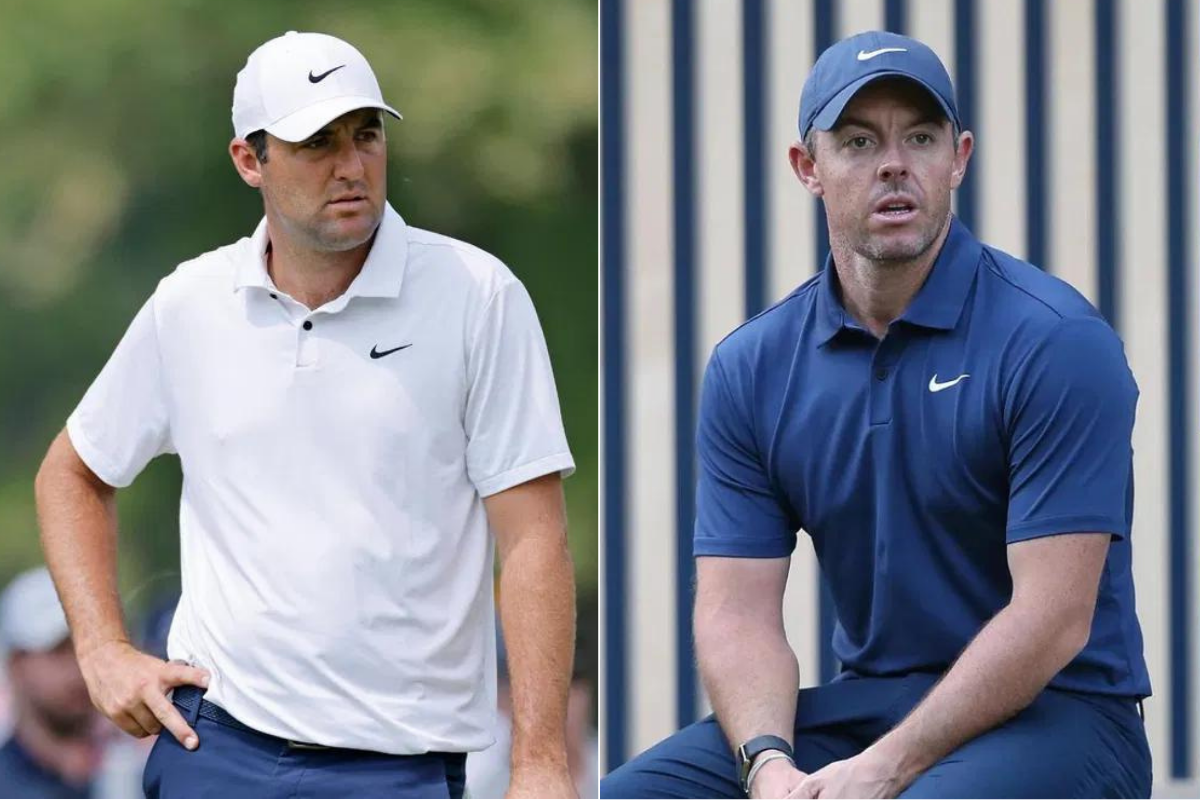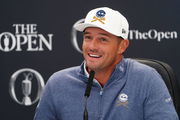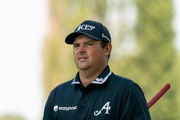
Imago
Image Credits: IMAGO

Imago
Image Credits: IMAGO
At the 2025 Open Championship in Royal Portrush, Scottie Scheffler made headlines for reasons beyond his world-class play; he offered a candid glimpse into his mindset: “Why do I want to win this tournament so bad? That’s something that I wrestle with on a daily basis. Showing up at the Masters every year, it’s like, why do I want to win this golf tournament so badly? Why do I want to win the Open Championship so badly? I don’t know.” Those victories were “awesome“, but they did not fill his deepest priorities. For Scheffler, his wife Meredith and infant son Bennett, remains the anchor of his life, and he has repeatedly said he will not sacrifice that balance for golf.
Watch What’s Trending Now!
That philosophy has created a sharp contrast with Rory McIlroy, who has taken almost the opposite path, building his schedule around historic national opens and insisting that leaving home soil to play globally is part of his responsibility to the game. As Fried Egg Golf noted on X, Scheffler has been adamant that traveling the world “is not my priority nor responsibility,” while McIlroy, on the other hand, views his support for international events as a central piece of his legacy. “I think that they’re the oldest championships in our game and I think they’re very, very important,” McIlroy had said in a press conference at the 2024 RBC Canadian Open.
Scheffler’s position is not without logic. He has dominated the PGA Tour calendar, piling up wins in 2024 and 2025 that reinforced his world No. 1 status. He is methodical about where he plays: major championships, flagship PGA Tour events, and the FedEx Cup Playoffs remain his primary targets. His consistency has paid off: Scheffler’s machine-like approach has delivered more top-10 finishes in two seasons than any of his peers, underlining that staying closer to home hasn’t hurt his results.
ADVERTISEMENT
“Outside of being arguably the greatest European golfer to ever play the game and a career grand slam champion, McIlroy has made a concerted effort to boost the profile of national opens, which could end up becoming a significant part of his legacy. Back at the Open Championship,… pic.twitter.com/hCgoTK5g49
— Fried Egg Golf (@fried_egg_golf) September 8, 2025
Yet the larger point raised by critics is that Scheffler’s domestic-first approach, while successful for him, does little to grow the game outside the United States. Fans in Asia, Australia, and South Africa rarely see him in person. His absence leaves these historic championships reliant on local stars or occasional appearances from Europeans. That is the gap where McIlroy has stepped in.
McIlroy’s approach has a real impact. In 2025, Augusta National and The R&A announced a new pathway: winners of six additional national opens- the Scottish, Spanish, Japanese, Hong Kong, Australian, and South African Opens will now receive exemptions into both The Masters and The Open Championship. This landmark change was designed to elevate global tournaments, and McIlroy’s long-standing advocacy has largely helped in creating the momentum for it.
ADVERTISEMENT
Additionally, McIlroy has had a longer and more storied career when compared to Scheffler. The Northern Irishman got his tour card in 2007, and Scheffler just got it in 2018. But yes, the World No. 1 has achieved much more success in that timeline than McIlroy did in his 18 years.
Interestingly, when it comes to popularity, McIlroy does indeed take the cake from Scheffler statistically. As per YouGov.com, McIlroy is ranked second in America alone, right after Tiger Woods, while Scheffler in his own home turf ranks 7, right after Sergio Garcia and Adam Scott.
ADVERTISEMENT
As Joseph LaMagna put it, “Outside of being arguably the greatest European golfer to ever play the game and a career grand slam champion, McIlroy has made a concerted effort to boost the profile of national opens, which could end up becoming a significant part of his legacy.” Scheffler has already established himself as the sport’s best current player. But McIlroy is proving that legacy is built not only by victories but by where and why you choose to play. For the world No. 1, that may be the most important lesson of all.
Top Stories
Bryson DeChambeau Visits PGA of America as LIV Golf’s Future Looks Bleak

Bryson DeChambeau Announces Career Move After $500M Demand Put LIV Golf in Worrying Spot

Patrick Reed Cuts Ties With LIV Golf as He Commits to PGA Tour With Public Message

Charley Hull Stands Her Ground After Nelly Korda Disapproved of Her Involvement in New Women’s League

Hideki Matsuyama Lashes Out at PGA Tour as Brooks Koepka Returns Without Serving Any Suspension

Beyond Scottie Scheffler and Rory McIlroy: players who carried golf
What makes the current contrast between Scottie Scheffler and Rory McIlroy so compelling is that history has repeatedly shown how global schedules can define a player’s legacy. Some of the game’s most celebrated figures: Seve Ballesteros, Gary Player, and Tiger Woods, all treated international play as more than a side mission. They saw it as a duty, a chance to bring golf to new audiences, and ultimately, as part of what secured their place in the game’s history.
ADVERTISEMENT
Seve Ballesteros embodied what McIlroy is now championing. The Spanish icon didn’t just dominate at home; he crossed continents to compete in Asia, Africa, and South America, at a time when travel was far less convenient than today. Seve’s presence elevated events like the Spanish Open and even smaller European Tour stops, while his charisma drew fans who had never seen a global superstar before.
Before Seve, there was Gary Player, the South African known as the “International Ambassador of Golf.” Player built his career on a grueling travel schedule that spanned six continents. He won more than 160 tournaments worldwide, including nine majors, but what truly distinguished him was his commitment to spreading the game beyond traditional centers. In his own words, “The world is my office,”and he made it so playing national opens in places where golf was only beginning to take root.
Even Tiger Woods, who played a more selective schedule, understood the power of global appearances. Woods regularly traveled for events in Japan, China, and the Middle East, often at the height of his dominance in the early 2000s. His participation turned tournaments like the HSBC Champions into premier global stops and inspired a new generation of fans in Asia.
ADVERTISEMENT
These legends illustrate that building a legacy often meant playing and nurturing the game globally. Rory McIlroy directly mirrors this ethos, using his star power to elevate national opens and shape the game’s international infrastructure. If Scottie Scheffler were to follow even a fraction of that path: strategically choosing one or two global events, it could not only energize those tournaments but also resonate as a defining feature of his lasting contribution to golf.
ADVERTISEMENT
ADVERTISEMENT
ADVERTISEMENT
